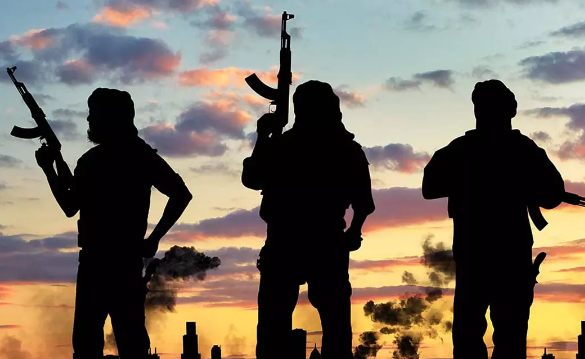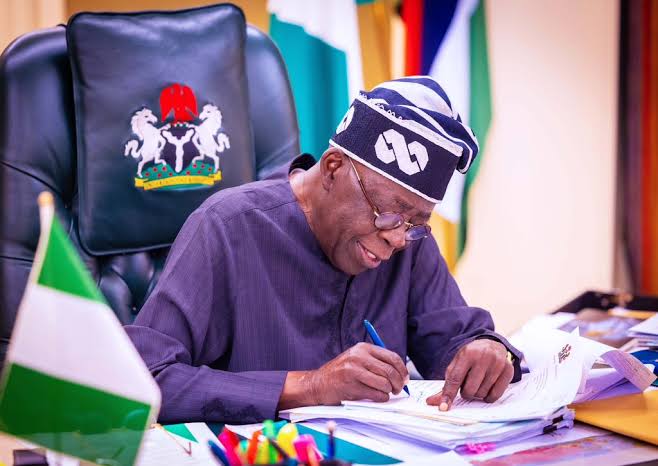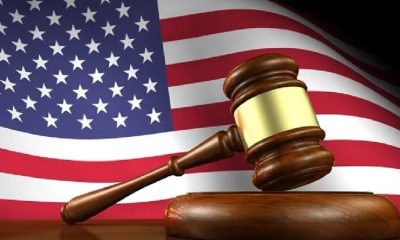News
Speaker Abbas Tasks ECOWAS On Solution to Terrorism, Human Trafficking, Climate Change

News
Ooni of Ife Named Grand Patron of Traditional Institutions in Africa Ahead of Africa Day

By Gloria Ikibah
The African Union Simulation has officially named the Ooni of Ife, Ooni Adeyeye Enitan Ogunwusi, CFR, Ojaja II, as the Grand Patron of Traditional Institutions in Africa.
This recognition comes ahead of the Africa Day celebration scheduled to take place in Abuja.
A delegation led by Ambassador Dr. Young Piero Omatseye, Africa Coordinator of the African Union Simulation, visited the Ooni at his palace in Ile-Ife on Friday, May 9, 2025, to present the honour and formally invite him to the upcoming event.
“We are here today on behalf of youths and leaders across 54 African countries to inform His Majesty that Africa Day will be commemorated through a blend of cultural traditions, training expeditions, and youth empowerment initiatives. Ooni of Ife, being a natural symbol of tradition, unity, and visionary leadership, has been unanimously nominated as the Grand Patron of the traditional institution in Africa,” Ambassador Omatseye said.
He added that the event will bring together African Heads of State, ministers, ambassadors, global partners, and experts in agriculture, energy, economy, innovation, and technology, all focusing on youth empowerment.
Ambassador Omatseye also recalled the participation of Her Regal Majesty, Amb. (Dr.) Temitope Enitan Ogunwusi, in a similar event at the African Union Headquarters in Addis Ababa last year, highlighting her role in promoting unity and youth development across the continent.
In her response, Her Majesty expressed her appreciation for the honour, praising the African Union Simulation for recognising her husband’s work in uplifting young people.
“My husband’s throne has become a platform for youth transformation across Africa. This prestigious nomination affirms the values he champions for the betterment of young Africans. We deeply appreciate this recognition,” she said.
The Ooni, in his remarks, thanked the delegation for the honour and promised his support.
“I thank the entire delegation and African youth who have traveled from across the continent to present this honour. I pray for the success of the Africa Day celebration and assure you of my support and presence, God willing,” he said.
The visit ended with the presentation of a plaque, officially confirming his role as Grand Patron of Traditional Institutions in Africa.
News
Insecurity! Gunmen kill police inspector in highway ambush

A police Inspector, Christian Gbaratee, was killed after gunmen ambushed a team of police officers on Tuesday along the Port Harcourt–Aba Road.
A counter-insurgency expert, Zagazola Makama, disclosed this via his X handle on Thursday.
Quoting police sources, Makama stated that the incident occurred around 8:30 p.m. while the officers were returning from a trip in Rivers State.
He also disclosed that the armed assailants, numbering five, were dressed in combat attire during the ambush.
He wrote, “A team of officers, including ASP Victor Eze and Inspector Nwanochi Ndubuisi, were returning from Port Harcourt, Rivers State, when they were intercepted by five armed assailants dressed in combat attire. The attack took place on a narrow road after a filling station along the Port Harcourt–Aba Road, Asa.
“During the confrontation, Inspector Christian Gbaratee was shot dead, while Inspector Ekoro Isong went missing. The gun stolen from Gbaratee during the attack, as well as the suspect who had been in custody, were taken by the assailants.”
He further disclosed that a prompt response by the police led to the recovery of a Toyota Corolla and other items, including expended ammunition, a laptop, and three travel bags.
“Additionally, Inspector Isong later surfaced unharmed. The body of the late Inspector Gbaratee has been deposited at the Euro Allied Medical Centre Mortuary for autopsy.
“A search operation in collaboration with military personnel is ongoing to track down the attackers and recover the stolen firearm,” he added.
News
Tinubu to establish child protection, development agency

By Francesca Hangeior
President Bola Tinubu has stated that the Federal Government is taking concrete steps to protect the dignity and future of every Nigerian child, even as he said plans have been concluded to establish a Child Protection and Development Agency to coordinate all issues affecting Nigerian children in a unified and focused manner.
Tinubu spoke on Thursday during the first regional meeting of the Africa Pathfinder Countries of the Global Alliance on Ending Violence Against Children.
The event was held at the Presidential Villa in Abuja. The president was represented by Vice President Kashim Shettima.
Tinubu said his administration is taking concrete steps to protect the dignity and future of every Nigerian child.
“Our legal frameworks reflect our conviction. From the Child Rights Act to the Violence Against Persons (Prohibition) Act, Nigeria has laid down the statutory foundation for the protection of children.
“But legislation alone does not shield the vulnerable — it is the will behind those laws, and the systems that enforce them, that make the difference.
“That is why our national strategy also embraces prevention and early intervention.
“We are strengthening families and communities through programmes that promote positive parenting, challenge harmful social norms, and provide targeted support to vulnerable households. But we must be honest with ourselves. We cannot protect the child by merely reciting the anthems of their struggles or romanticising their vulnerability, Tinubu said.
He stated that the real hope lies in action — concrete, deliberate action.
“Our commitment must run deep, reaching into the very architecture of our education and health systems. This is the soul of our human capital development strategy,” he said.
Tinubu added that every Nigerian child should grow and learn in a safe environment.
“We aim to ensure that every Nigerian child has the opportunity to grow, learn, and thrive in a safe and nurturing environment. This is not simply a policy objective; it is a moral obligation.
“We are investing in safe schools and embedding socio-emotional learning into our national curriculum.
“We are rolling out the National Guidelines on Alternative Care to ensure that even children without parental care are raised in love, safety, and stability,” he said.
-

 News15 hours ago
News15 hours agoJust in: Popular Yoruba traditional ruler joins his ancestors
-

 News19 hours ago
News19 hours agoExperts say helicopter firm may face criminal charges over Herbert Wigwe’s death
-

 News15 hours ago
News15 hours agoJust in: Nigeria is still owing us N190bn- IMF insists
-

 Politics19 hours ago
Politics19 hours agoAwolowo’s grand-daughter resigns as LP executive committee member
-

 News15 hours ago
News15 hours agoJust In: JAMB releases 2025 UTME results, withholds 39,834 over misconduct
-

 News18 hours ago
News18 hours agoBenue on fire as gunmen kill APC leader, District Head on their farms
-

 News19 hours ago
News19 hours agoS’Court judgment forces US military to remove 1,000 transgender
-

 News19 hours ago
News19 hours agoCount me out of ENDSARS killings in Lagos’, – Nnamdi Kanu






